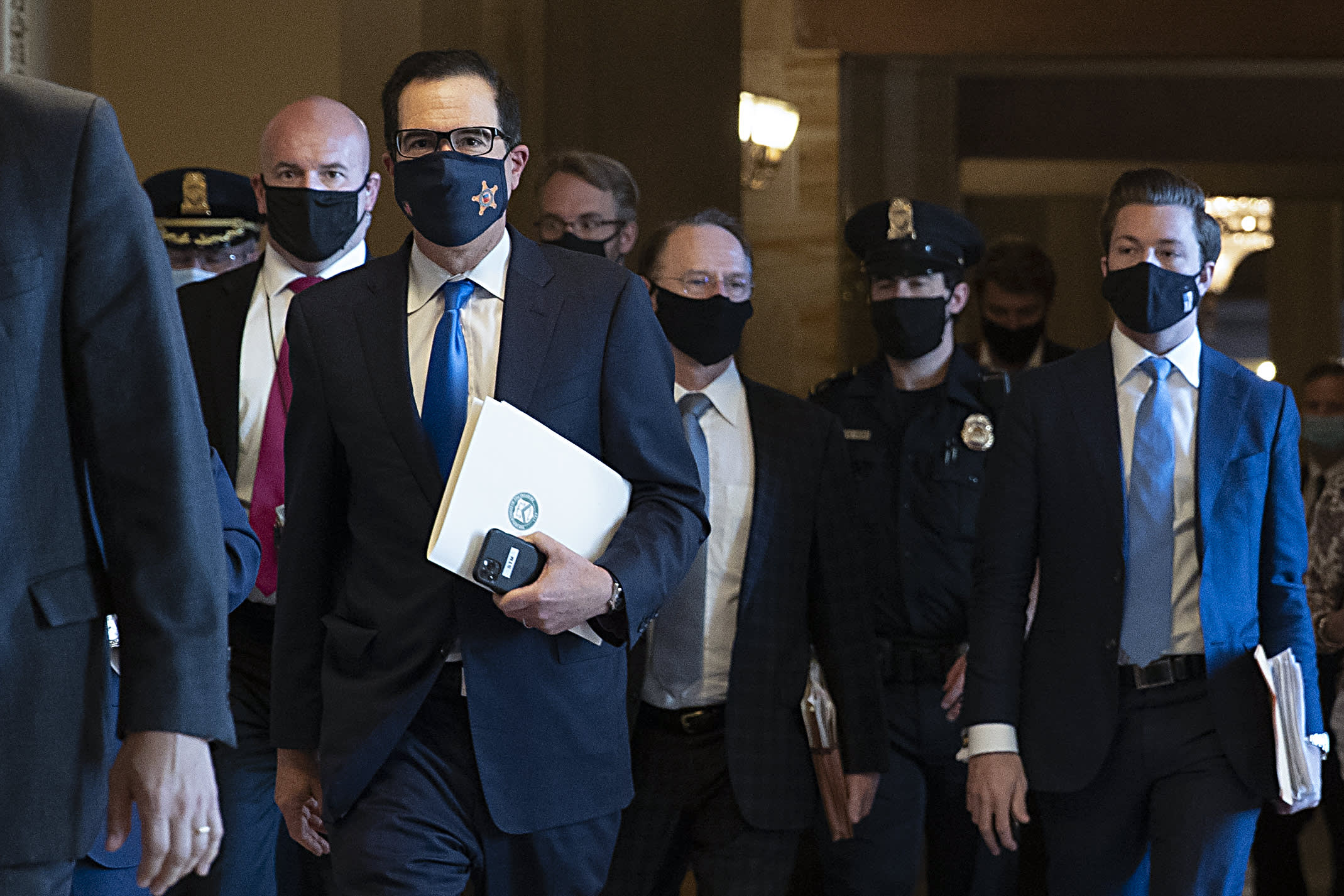U.S. Treasury Secretary Steven Mnuchin departs from the office of Senate Majority Leader Mitch McConnell (R-KY) at the U.S. Capitol on September 30, 2020 in Washington, DC.
Tasos Katopodis | Getty Images
House Speaker Nancy Pelosi and Treasury Secretary Steven Mnuchin will try to scrape together a coronavirus stimulus deal Thursday as more trouble spots emerge in the U.S. economic recovery.
After the pair met in person Wednesday to try to craft a fifth pandemic relief package, they said they would continue negotiations toward an agreement. The House, which had aimed to pass a $2.2 trillion Democratic bill Wednesday night, delayed a vote until at least Thursday to allow more time for Pelosi and Mnuchin to hash out a bipartisan plan that could get through both chambers of Congress.
It was unclear Thursday morning whether the speaker and secretary would huddle in person again. Senate Majority Leader Mitch McConnell has opposed the Democratic legislation, meaning it likely will not get through the Republican-led chamber.
A source on the Democratic whip conference call on Thursday told NBC News that Speaker Pelosi sounded “frustrated” and “fired up” in describing the current state of negotiations. Pelosi said Republicans “don’t share our values” or want to make necessary investments – specifically in state and local funding and health-related priorities, according to the source.
During the meeting Wednesday, Mnuchin offered a $1.6 trillion proposal — up from the $1.3 trillion the White House had embraced, according to NBC News. It includes $250 billion for state and local government relief, $400 per week in extra unemployment benefits, $150 billion for education, $75 billion for Covid-19 testing and contact tracing and $60 billion for rental and mortgage assistance, NBC reported.
The effort to revive aid discussions follows weeks of pessimism about Congress’ ability to boost the U.S. economy and health-care system before the Nov. 3 election. Lawmakers have not passed new relief funds in months as Democrats and Republicans wrestle over how to structure a package.
The outbreak continues to spread across the country: the U.S. has seen a seven-day average of nearly 43,000 daily new cases. At the same time, many workers and businesses flounder as restrictions designed to slow the pandemic remain in place.
Initial jobless claims dipped to 837,000 last week, a level still higher than anything seen in recent American memory before shutdowns in March. At the same time, American Airlines and United Airlines will start to furlough more than 32,000 workers combined as they seek federal aid.
Any stimulus deal is expected to include $25 billion to help airlines cover payroll costs.
Companies such as Disney and Royal Dutch Shell also announced plans to lay off employees this week.
Democrats and Republicans could have a difficult time bridging broad disagreements over how best to respond to the crisis. On Wednesday, McConnell said the sides are “very far apart.”
Among the differences, Democrats have pushed for more than $400 billion in state and municipal aid — higher than the $250 billion offered by the White House. They have also sought to reinstate the extra jobless benefit at $600 per week, as opposed to the $400 put forward by the Trump administration.
Republicans also want liability protections for businesses, which Democrats oppose.
Vulnerable Republicans and Democrats up for reelection in November have agitated for their party leaders to take some kind of concrete action to respond to the crisis.
